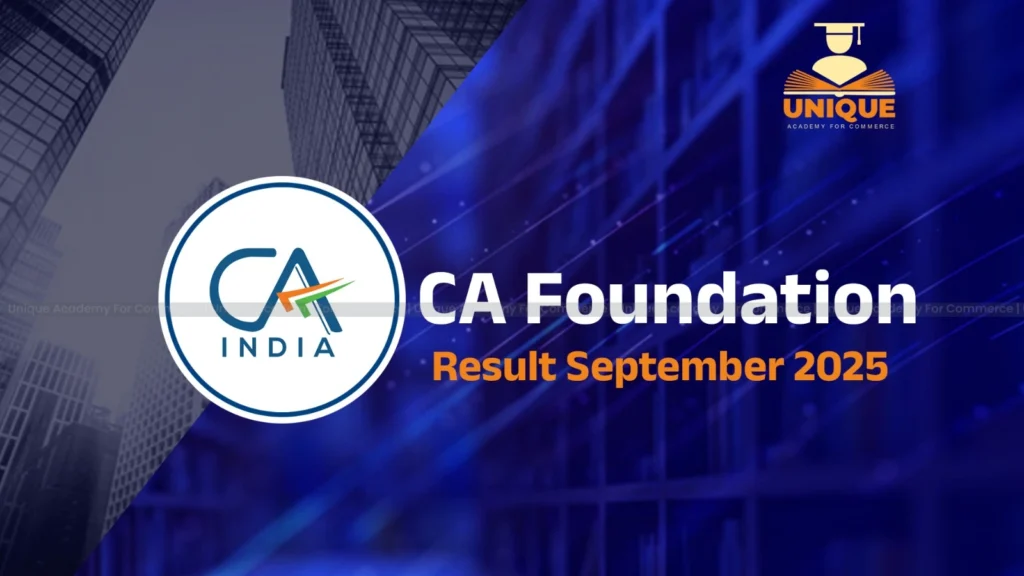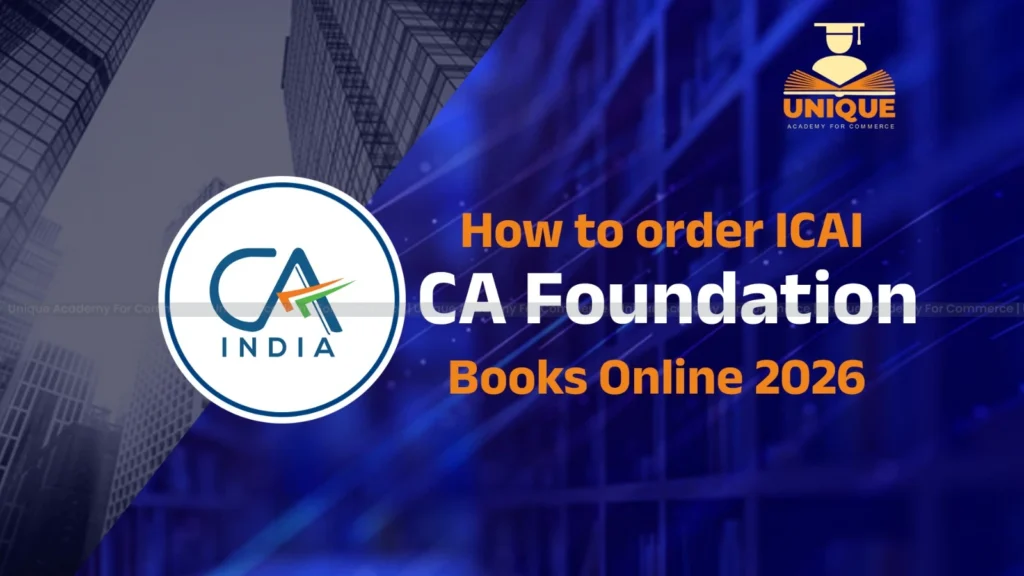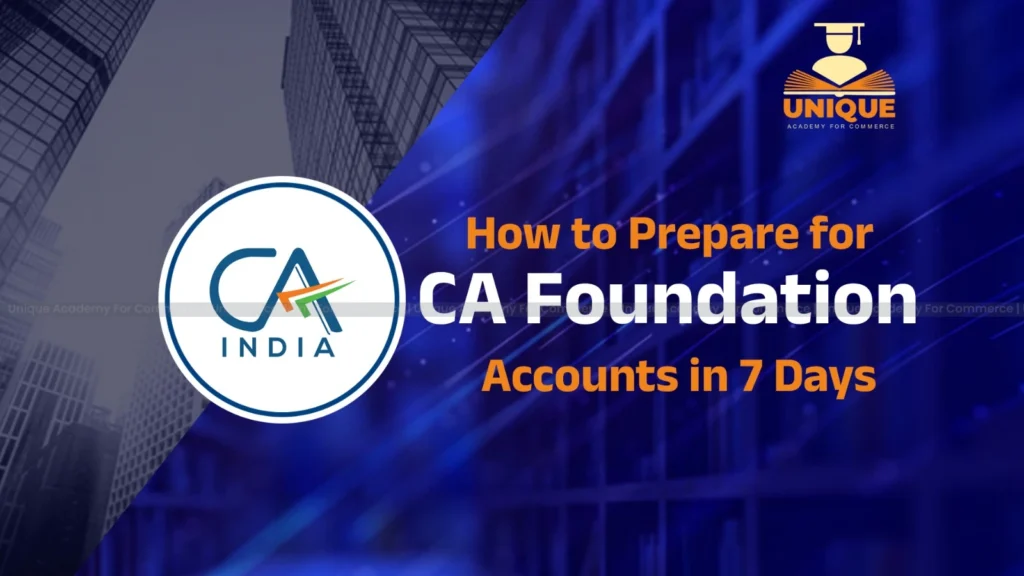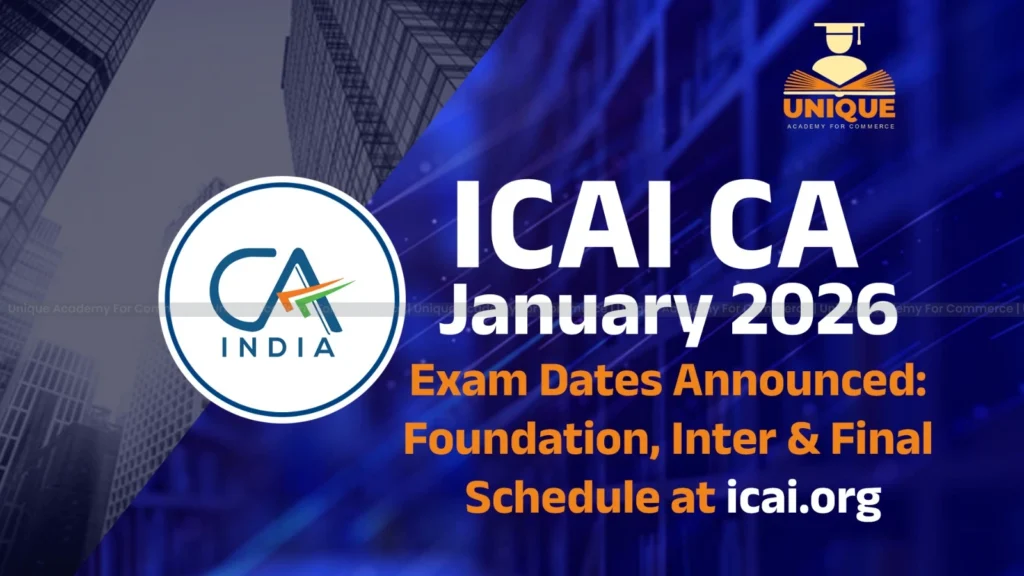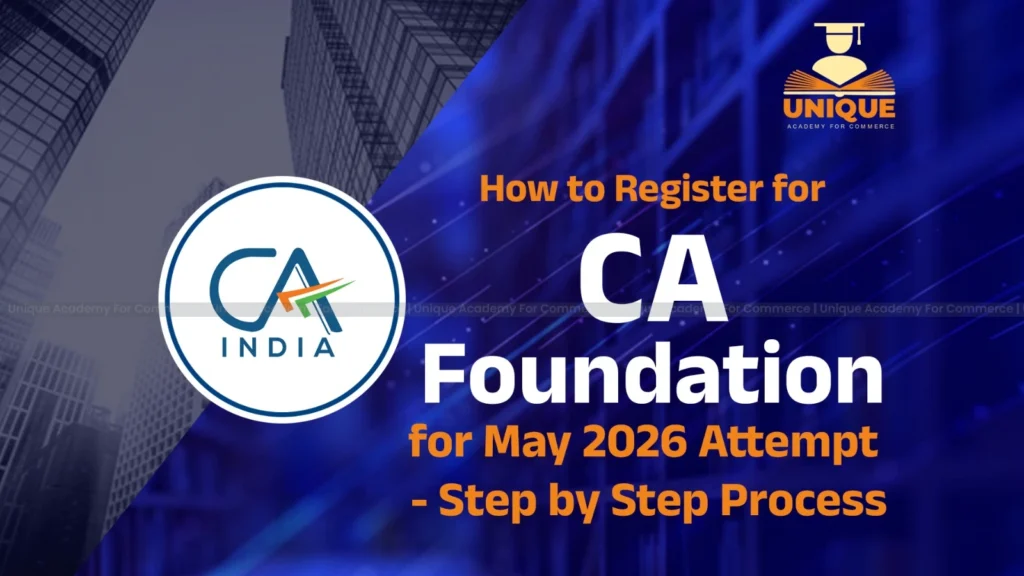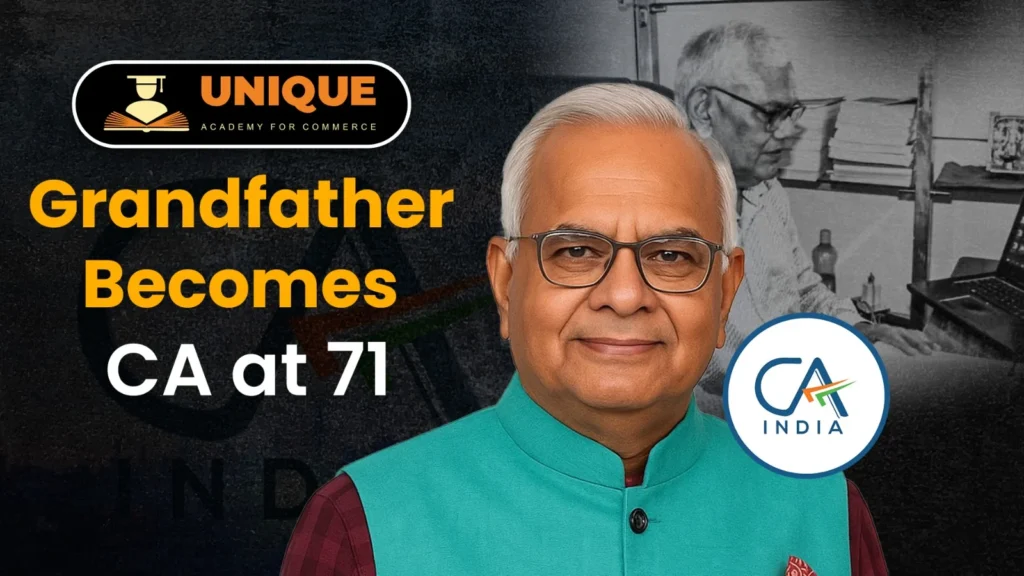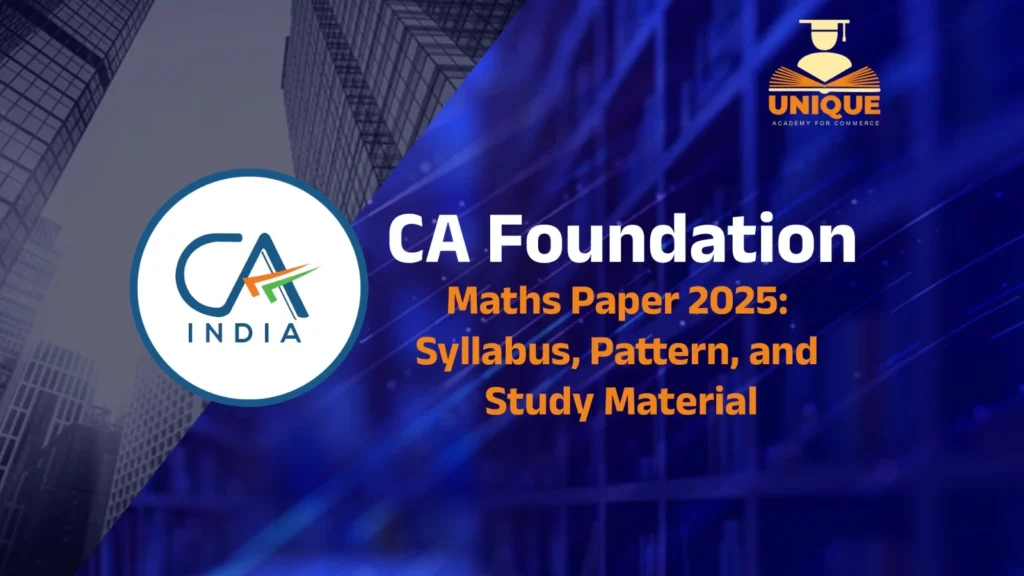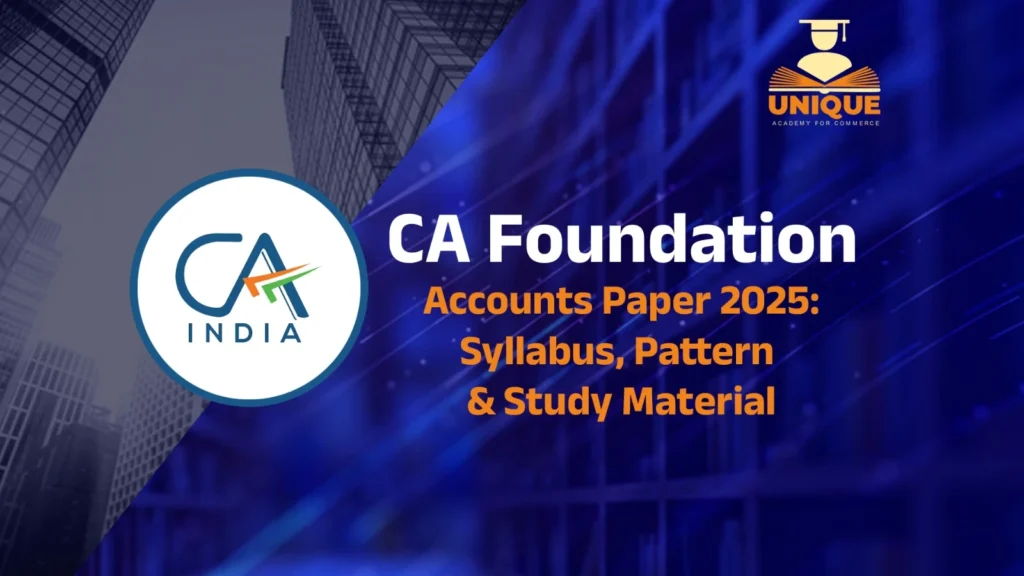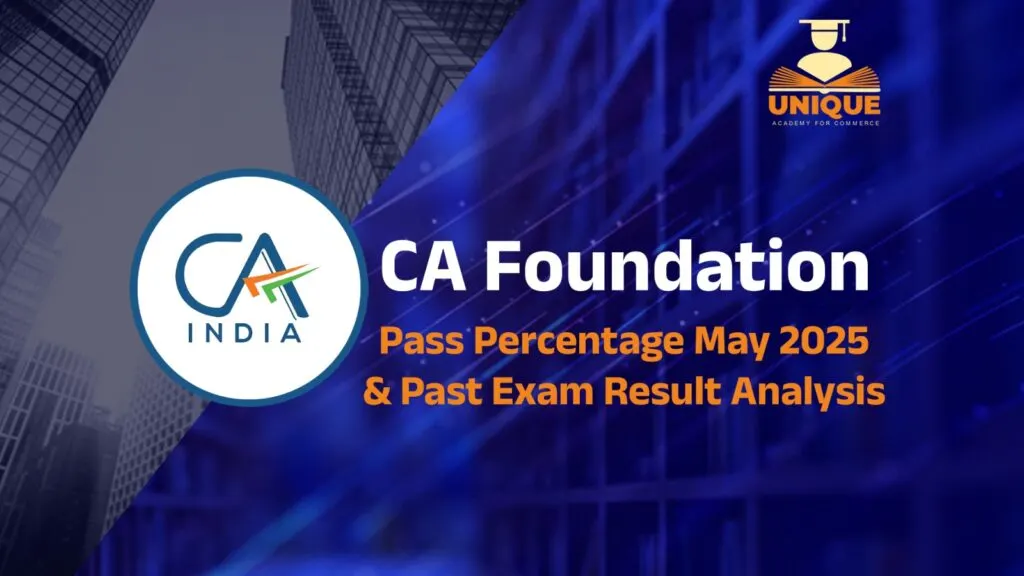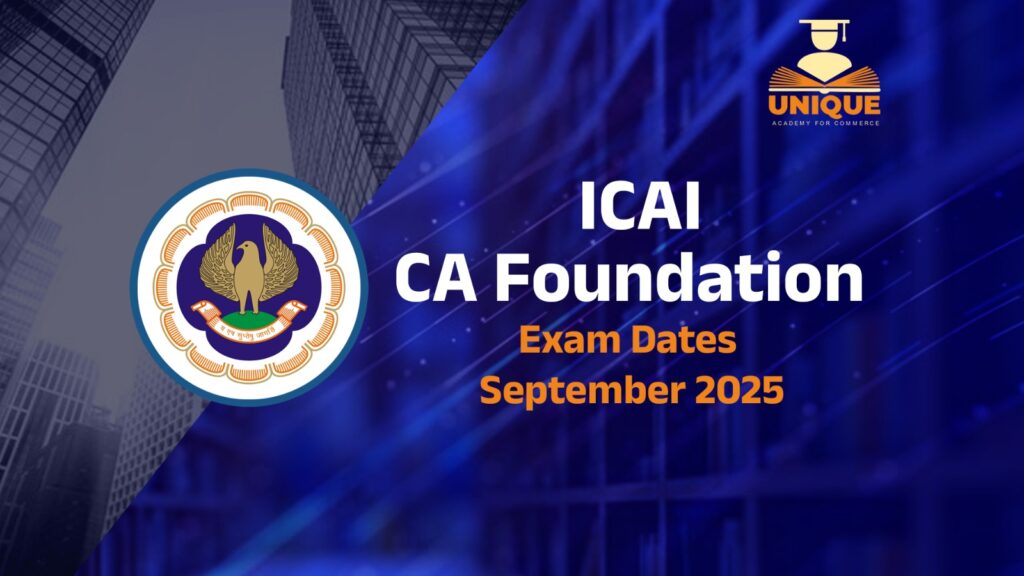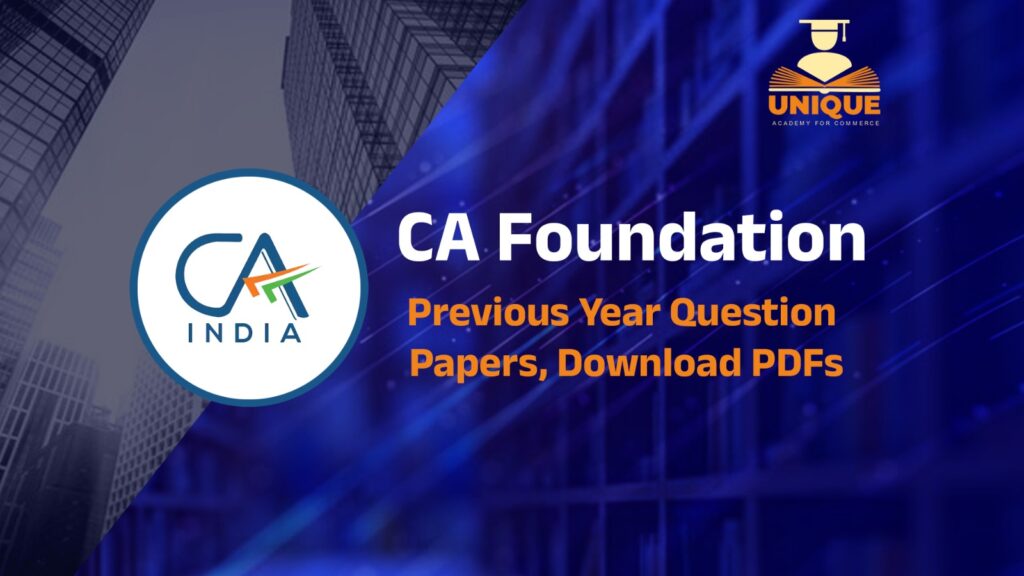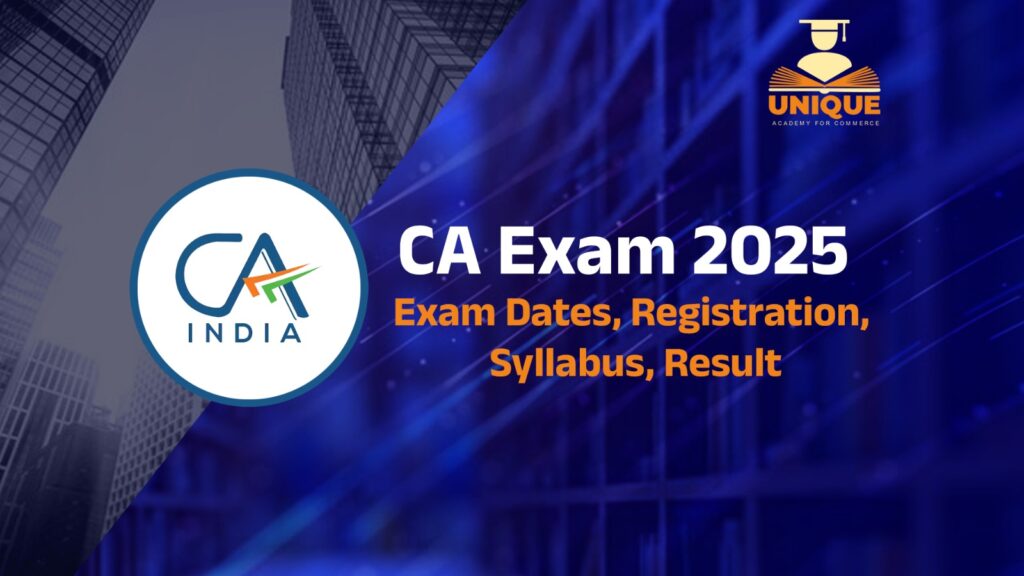CA Foundation Syllabus 2025, New Scheme Syllabus and Subjects
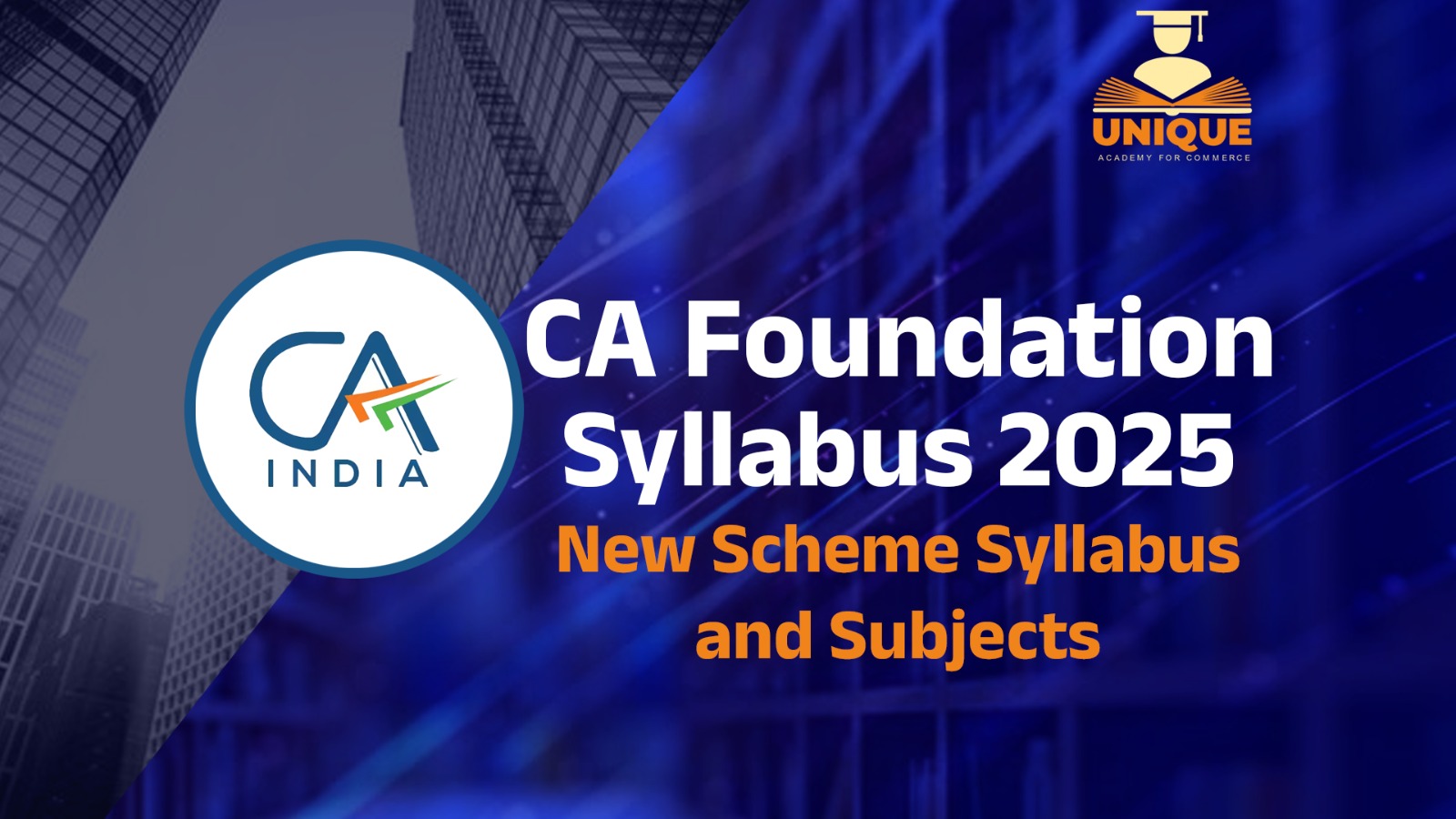
ICAI CA Foundation syllabus is set by the Institute of Chartered Accountants of India (ICAI). CA syllabus 2025 for Foundation course covers all subjects of accounts, economics, maths and business law. All CA Foundation papers need to be cleared by candidates in order to proceed to CA Intermediate level.
All the levels of exams are difficult but if we compare them, the syllabus of CA Foundation is the easiest and the syllabus of CA Final is the most difficult. There are four papers in the CA Foundation course in total. Each paper has several topics. In this article, you will get to read everything about New Scheme Syllabus and Subjects.
ICAI CA Foundation Eligibility Criteria 2025

One becomes eligible for the CA Foundation course after Class 12. The best stream of study is Commerce.
Candidates appearing for admission to the CA Foundation course must have passed or be appearing in Class 12 from a recognized board, and register with the Board of Studies (BoS) before January 1, 2025, completing a four-month study period.
Similarly 4 months gap is essential to sit for September attempt that is 1st may,2025.
CA Foundation Syllabus for September 2025 (New Scheme)
Join CA Foundation Free Batch Now.
Paper 1: Principles and Practice of Accounting
Module 1:
Theoretical Framework
- Meaning and Scope of Accounting
- Accounting Concepts, Principles, and Conventions
- Capital and Revenue Expenditures and Receipts
- Contingent Assets and Contingent Liabilities
- Accounting Policies
- Accounting as a Measurement Discipline – Valuation Principles and Accounting Estimates
- Accounting Standards
- Accounting Process
Basic Accounting Procedures – Journal Entries, Ledgers, and Trial Balance
- Subsidiary Books
- Cash Book
- Rectification of Errors
- Bank Reconciliation Statement
Inventories
Depreciation and Amortization
Bills of Exchange and Promissory Notes
Preparation of Final Accounts of Sole Proprietors
- Final Accounts of Non-Manufacturing Entities
- Final Accounts of Manufacturing Entities
Module 2:
8. Financial Statements of Not-for-Profit Organizations
Accounts from Incomplete Records
Partnership and LLP Accounts
- Introduction to Partnership Accounts
- Treatment of Goodwill in Partnership Accounts
- Admission, Retirement, and Death of a Partner
- Dissolution of Partnership Firms and LLPs
Company Accounts
- Introduction to Company Accounts
- Issue, Forfeiture, and Re-Issue of Shares
- Issue of Debentures
- Accounting for Bonus and Rights Issues
- Redemption of Preference Shares and Debentures
Paper 2: Business Laws and Business Correspondence
Section A: Business Laws
- Indian Regulatory Framework
- The Indian Contract Act, 1872
- Nature of Contracts
- Consideration
- Essential Elements of a Contract
- Performance of Contract
- Breach of Contract and Remedies
- Contingent and Quasi Contracts
- Contracts of Indemnity, Guarantee, Bailment, and Pledge
- Agency
The Sale of Goods Act, 1930
- Formation of the Contract of Sale
- Conditions and Warranties
- Transfer of Ownership and Delivery of Goods
- Rights of an Unpaid Seller
The Indian Partnership Act, 1932
- General Nature of Partnership
- Relations of Partners
- Registration and Dissolution of a Firm
The Limited Liability Partnership Act, 2008
The Companies Act, 2013
The Negotiable Instruments Act, 1881
Paper 3: Quantitative Aptitude
Part A: Business Mathematics
- Ratio and Proportion, Indices, and Logarithms
- Equations
- Linear Inequalities
- Mathematics of Finance
- Basic Concepts of Permutations and Combinations
- Sequence and Series – Arithmetic and Geometric Progressions
- Sets, Relations, and Functions
- Basics of Limits and Continuity, Differential and Integral Calculus
Part B: Logical Reasoning
- Number Series, Coding and Decoding, and Odd Man Out
- Direction Tests
- Seating Arrangements
- Blood Relations
Part C: Statistics
- Statistical Representation of Data and Sampling
- Measures of Central Tendency and Dispersion
- Probability
- Theoretical Distributions
- Correlation and Regression
- Index Numbers
Paper 4: Business Economics
Introduction
- Basic Problems of an Economy
- Role of Price Mechanism
Theory of Demand and Supply
- Law of Demand and Elasticity of Demand
- Theory of Consumer Behaviour
- Supply
- Theory of Production and Cost
Theory of Production
- Theory of Cost
Price Determination in Different Markets
Meaning and Types of Markets
- Determination of Prices and Output in Various Market Forms
Business Cycles
Determination of National Income
- National Income Accounting
- Keynesian Theory of National Income
Public Finance
- Fiscal Functions, Centre and State Finance
- Market Failure and Government Interventions
- Budgeting, Revenue, and Public Debt Management
Fiscal Policy
- Money Market
- Theories of Money Demand and Supply
- Monetary Policy
International Trade
- Theories and Instruments of Trade Policy
- Trade Negotiations
- Exchange Rates and Economic Effects
- International Capital Movements
Indian Economy
- Insights into budget-making, fiscal functions, and revenue/expenditure management.
- Role of economic reforms in India’s development.
Preparation tips:

1. Pay attention to your presentation: What essentially happens is that ICI provides suggested answers, and your paper gets compared to that. They observe how different your answers are from the suggested ones. If you’re correct, you receive a tick; otherwise, marks are deducted. So, you must pay attention to your presentation.
2. ABC analysis: Proper ABC analysis of the entire syllabus: performing ABC analysis serves to sift out the significant aspects of the syllabus, but don’t leave the completely unrevealed parts out.
3. Don’t miss out on theory and less asked questions in practical subjects: Don’t neglect theory students. It can actually increase your scores. So please, don’t be the sort of student who skips theory and just relies on the exam.





